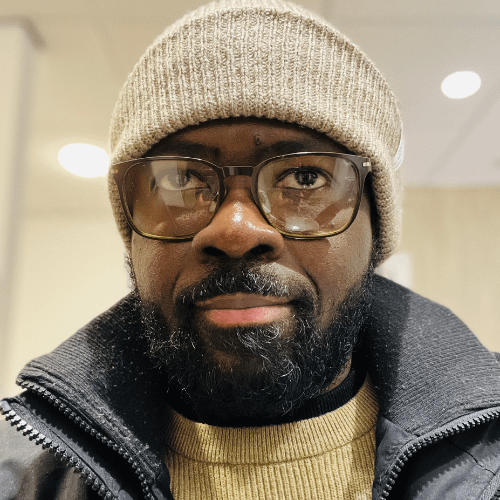Across Nigeria, a quiet revolution is taking place—one not driven by institutions or corporations, but by individuals equipped with little more than mobile devices, internet access, and bold ideas. These individuals, commonly referred to as content creators, are redefining how income is generated, how influence is built, and how careers are shaped.
The term “creator economy” refers to the ecosystem where individuals earn money by producing and sharing content across digital platforms. This includes YouTubers, TikTok stars, podcasters, Instagram influencers, and writers on platforms like Substack or Medium. In Nigeria, this movement has gathered real momentum, fuelled by youth unemployment, rising costs of living, and a hunger for visibility and financial freedom.
The Digital Shift
Traditional employment routes in Nigeria—civil service, banking, oil and gas—no longer offer the security they once promised. For the youth, these paths often seem out of reach or unappealing. Smartphones and internet bundles have become tools for disruption. With them, people now create engaging material that pulls in audiences from across the globe.
TikTok and YouTube dominate, especially among younger audiences. TikTok’s short-form videos allow creators to express their personality, culture, and opinions within seconds, often going viral without huge production budgets. YouTube, on the other hand, rewards longer content and consistency, allowing creators to build loyal subscriber bases.
Content themes vary widely. Comedy, skits, beauty tutorials, educational content, financial advice, vlogs, and reaction videos are all in high demand. What unites these genres is relatability. Nigerian creators are crafting content that speaks directly to their audience’s reality—whether through humour, storytelling, or practical advice.
Monetisation Pathways
Creating content is just the beginning. For this to become a viable career, it needs to generate income. Here’s how Nigerian creators are doing it in 2025:
1. Platform Revenue Sharing
YouTube pays creators a portion of ad revenue through its Partner Programme. While this requires meeting certain subscriber and watch-hour thresholds, it remains a reliable source of earnings once achieved.
TikTok also introduced revenue-sharing options through its Creator Fund and in-stream ads. While the payout rates aren’t always high, consistent content production and strong engagement can bring in a steady stream of cash.
Instagram and Facebook also provide bonuses and monetisation options, particularly for reels and live content, though uptake in Nigeria is still growing.
2. Brand Sponsorships and Partnerships
Once creators build a significant following, brands start knocking. Influencer marketing is no longer reserved for celebrities; micro and mid-tier creators are in demand for their authenticity and niche audiences. These sponsorships can range from product placements to full-blown brand ambassadorships.
Nigerian brands, especially in tech, fintech, and lifestyle sectors, are increasingly collaborating with local creators. These partnerships are often lucrative and can elevate a creator’s profile instantly.
3. Affiliate Marketing
Instead of relying solely on brand deals, some creators turn to affiliate marketing. They promote products or services using custom links and earn a commission on every sale made through those links. This method rewards creators with loyal audiences who trust their recommendations.
Online courses, fashion items, eBooks, and even real estate offerings have all found traction through affiliate links shared by Nigerian content creators.
4. Digital Products and Services
Savvy creators are packaging their knowledge into products—courses, eBooks, templates, or webinars—and selling them directly to their followers. This model gives them full control over pricing and distribution and builds long-term customer relationships.
Some creators also offer coaching, consulting, or editing services, using their online presence as a lead-generation machine.
5. Crowdfunding and Fan Support
Platforms like Patreon and Buy Me a Coffee have empowered creators to receive direct support from their audiences. Even without these platforms, many Nigerian creators use WhatsApp or bank transfer methods to gather support for specific projects or ongoing content.
This approach works best for creators who cultivate close-knit communities and offer behind-the-scenes access or exclusive content as perks.
Key Ingredients for Success
Monetisation isn’t automatic. Many creators in Nigeria struggle to gain traction or convert views into income. Those who succeed tend to share certain traits:
Consistency
Whether uploading three times a week or once a day, staying regular helps audiences know when to tune in. Algorithms also tend to favour regular posting schedules.
Authenticity
Audiences can sense when content is forced or overly polished. The most successful Nigerian creators share their journey, flaws and all. This vulnerability builds loyalty.
Community Engagement
Replying to comments, hosting live sessions, or asking followers what they’d like to see next—all of these build a two-way relationship. It’s not just about creating content; it’s about creating dialogue.
Adaptability
What worked last year may not work today. Nigerian creators who pay attention to trends, adjust their approach, and try new formats tend to rise faster and survive longer.
Case Studies
Let’s look at a few examples (names changed for privacy) to illustrate how different strategies work:
Chisom the Comedy Skit Creator
Chisom began posting short skits on TikTok during the lockdown. Her humour, drawn from everyday Lagos life, quickly caught on. After gaining 100,000 followers, brands like Paystack and Bolt reached out for sponsorships. Today, she earns through brand deals, her YouTube ad revenue, and sells merchandise featuring popular characters from her skits.
Fola the Finance Educator
Fola, a former banker, turned her passion for teaching personal finance into a full-time gig. She posts breakdowns of how to save, invest, and avoid scams. Her digital eBooks and one-on-one coaching sessions bring in more income than her bank job ever did. She’s also partnered with fintech firms to promote their apps.
Zainab the Beauty Influencer
Zainab started with DIY tutorials on Instagram and later expanded to YouTube. She now runs a paid beauty course, sells her own line of skincare products, and has endorsement deals with international brands. Her journey shows the power of starting small and building up trust before monetising.
Barriers and Challenges
Even with all the opportunities, being a content creator in Nigeria isn’t easy.
Data Costs and Poor Connectivity
Internet remains expensive and unreliable in many parts of Nigeria. This affects both content uploaders and viewers, limiting reach and engagement.
Equipment and Infrastructure
While many start with just a smartphone, growing often requires tripods, microphones, ring lights, and sometimes even editors or managers. These investments are not cheap.
Algorithm Dependency
Many platforms change their algorithms frequently, which can affect visibility and income. Creators often complain about fluctuations in engagement due to these unseen adjustments.
Burnout
Creating consistent, quality content takes time and mental energy. Without breaks or proper boundaries, creators often find themselves overwhelmed or stuck in a loop of anxiety and pressure.
The Role of Education and Mentorship
One emerging solution is structured education. Online courses specifically for African creators have emerged, teaching content strategy, monetisation models, storytelling, and marketing. Some NGOs and private organisations have also stepped in to offer bootcamps or funding for upcoming talents.
Mentorship is another crucial piece. Established creators who are open to guiding newcomers help shorten the learning curve. The sharing of real experiences, pitfalls, and strategies accelerates growth and strengthens the wider creator community.
The Global Reach of Nigerian Content
What’s striking about the current wave is how far Nigerian content travels. Skits, music reactions, tutorials, and cultural commentary are resonating with African diaspora audiences, as well as with curious viewers from other parts of the world. Nigerian slang, jokes, and perspectives are gaining international attention.
This cross-border influence has unlocked new monetisation possibilities. International brands see value in Nigerian creators as a bridge to African markets. Local content is becoming global currency.
What Lies Ahead
The creator economy in Nigeria is no longer an experiment—it’s a legitimate path to wealth, freedom, and influence. As tools become more accessible and success stories multiply, more young Nigerians will be inspired to take the plunge.
While challenges remain, the movement shows no signs of slowing. With persistence, originality, and a strong connection to their audience, Nigerian creators are not just surviving—they are shaping the culture, the economy, and the future of storytelling.


Your comment is awaiting moderation.
lp1qql